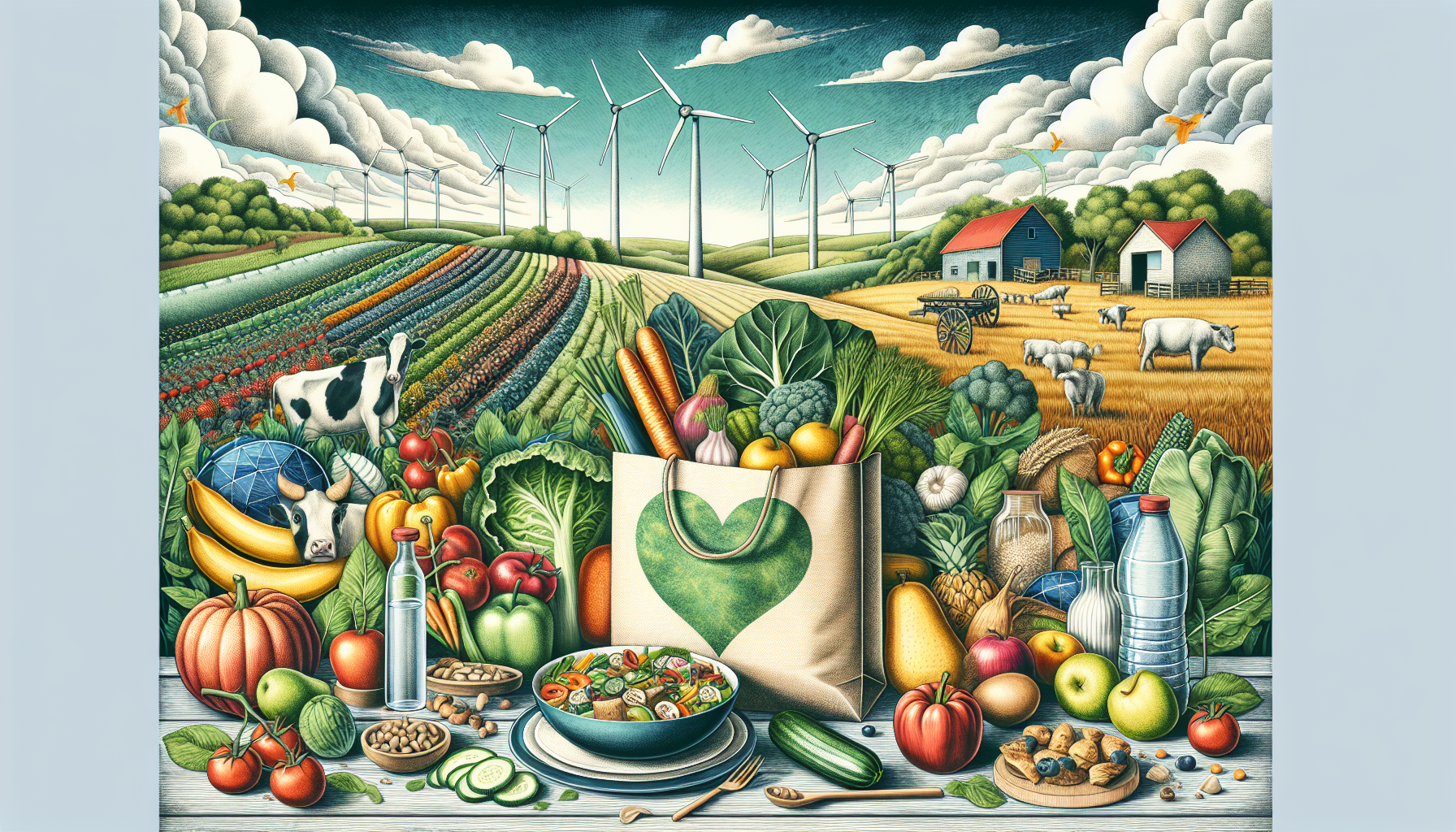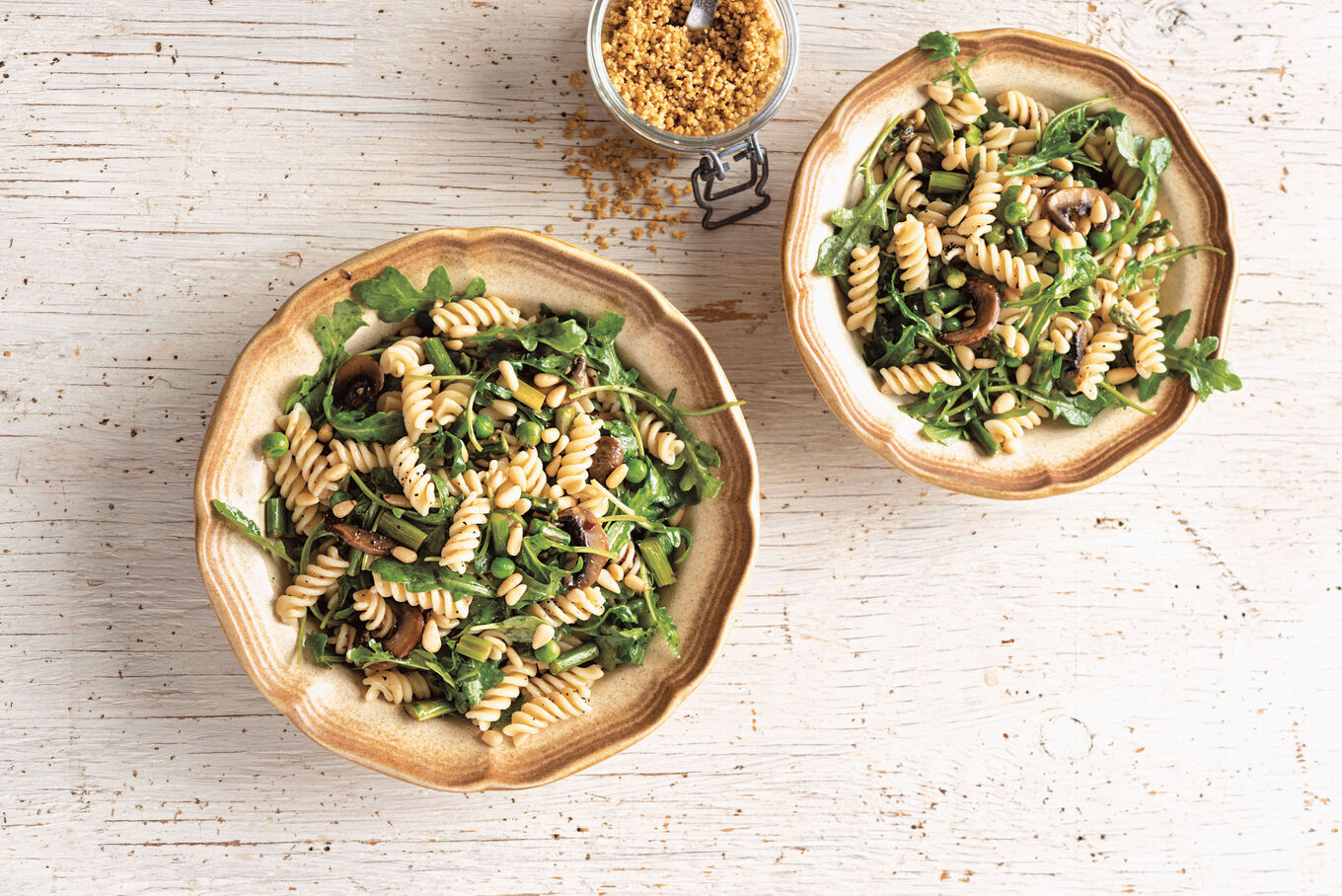Are you curious about making a positive shift in your life? Consider embarking on a vegan lifestyle change. By opting for a plant-based diet, you can experience numerous benefits for your health, the environment, and animal welfare. Embracing a vegan lifestyle means saying goodbye to animal products and hello to a world filled with delicious, nutritious, and cruelty-free meals. Whether you’re a seasoned meat-eater or simply seeking a new adventure, this article will be your guide to all things vegan. Get ready to explore the transformative power of a vegan lifestyle change!

Table of Contents
Reasons for Choosing a Vegan Lifestyle
Ethical Concerns
One of the main reasons people choose to embrace a vegan lifestyle is because of ethical concerns. Many individuals feel that consuming animal products goes against their beliefs in the fair treatment of animals. They believe that animals have the right to live free from harm and exploitation. By adopting a vegan lifestyle, you can align your actions with your values and contribute to the well-being of animals.
Environmental Impact
Another compelling reason to choose a vegan lifestyle is the significant impact it can have on the environment. Animal agriculture is known to be a major contributor to greenhouse gas emissions, deforestation, and water pollution. Raising animals for food requires vast amounts of land, water, and food resources. By opting for a plant-based diet, you can reduce your carbon footprint and help combat climate change.
Health Benefits
In addition to the ethical and environmental motivations, there are numerous health benefits associated with a vegan lifestyle. Studies have shown that a well-planned vegan diet can provide all the necessary nutrients, vitamins, and minerals for optimal health. A plant-based diet is typically rich in fruits, vegetables, whole grains, legumes, and nuts, which are all packed with essential nutrients and antioxidants. Adopting a vegan lifestyle has been linked to lower rates of heart disease, high blood pressure, obesity, and certain types of cancer.
Getting Started with a Vegan Lifestyle
Educating Yourself
Before diving into a vegan lifestyle, it is essential to educate yourself about the principles and practices involved. Familiarize yourself with the various reasons people choose veganism and the potential challenges that may arise. Explore resources such as books, documentaries, and online forums to gain a deeper understanding of the lifestyle and how to navigate it successfully.
Meal Planning
Successful meal planning is a crucial aspect of transitioning to a vegan diet. Start by researching and experimenting with vegan recipes that appeal to your taste buds. Explore different cuisines, flavors, and ingredients to keep your meals exciting and enjoyable. Planning your meals in advance can help ensure that you have all the necessary ingredients on hand and avoid moments of uncertainty or reliance on convenience foods.
Grocery Shopping
When adopting a vegan lifestyle, grocery shopping will become an adventure of its own. Take the time to familiarize yourself with the vegan alternatives available in your local supermarket or health food store. Stock up on fresh produce, whole grains, legumes, and plant-based proteins such as tofu, tempeh, and seitan. Remember to read labels carefully, as some unexpected ingredients may be derived from animals.
Transitioning to a Vegan Diet
Gradual Approach
Transitioning to a vegan diet does not have to be an all-or-nothing process. For many individuals, a gradual approach helps to ease the transition and provides a higher chance of long-term success. Start by gradually reducing your consumption of animal products and increasing your intake of plant-based foods. This approach allows your taste buds and digestive system to adjust slowly, making the transition more sustainable.
Try Meat Substitutes
meat substitutes can be an excellent bridge between a traditional diet and a vegan one. They offer similar textures and flavors to meat while being entirely plant-based. Explore options such as tofu, tempeh, seitan, and plant-based burgers, which can easily replace meat in your favorite recipes. Experimenting with different meat substitutes can help you discover new flavors and dishes that align with your vegan lifestyle.
Experiment with New Recipes
Embracing a vegan lifestyle opens up a world of culinary possibilities. There are countless vegan recipes available online, in cookbooks, and through various food blogs. Take the opportunity to experiment with new ingredients and cooking techniques. You might be surprised by the creativity and deliciousness of vegan meals that you can prepare in your own kitchen. Discovering new recipes will keep your meals interesting and ensure you never feel deprived of variety.
Maintaining Proper Nutrition
Protein Sources
Protein is an essential nutrient for the body, and one concern people often have when transitioning to a vegan diet is getting enough protein. However, there are plenty of plant-based sources of protein that can easily meet your nutritional needs. Incorporate foods such as legumes, tofu, tempeh, seitan, quinoa, and a variety of nuts and seeds into your meals. These protein-rich options will help you stay full and energized throughout the day.
Vitamin B12 and Supplements
Vitamin B12 is primarily found in animal products, making it important for vegans to monitor their intake. To ensure you are meeting your B12 requirements, consider taking a B12 supplement or using fortified foods that contain this essential vitamin. Consulting with a healthcare professional or registered dietitian can also provide guidance on how to maintain proper levels of B12 and other nutrients.
Balancing Macronutrients
A well-balanced vegan diet should include a variety of macronutrients to support overall health. Ensure your meals consist of carbohydrates, healthy fats, and proteins to provide your body with the necessary fuel and nutrients. Incorporate whole grains, avocados, nuts, and seeds into your diet to ensure you are getting a good balance of macronutrients. Additionally, incorporating a variety of fruits and vegetables will help provide essential vitamins and minerals.

Overcoming Challenges
Social Situations and Dining Out
Navigating social situations and dining out can be challenging when following a vegan lifestyle. However, with a little preparation and communication, you can still enjoy these occasions without compromising your principles. Reach out to friends and family in advance to inform them about your dietary choices and suggest vegan-friendly options or restaurants. When dining out, research menus beforehand, ask for modifications, and be proactive in communicating your vegan preferences to the waitstaff.
Dealing with Cravings
As with any dietary change, cravings may arise when transitioning to a vegan lifestyle. Cravings can stem from habit, emotional triggers, or certain nutrient deficiencies. To combat cravings, ensure you are eating a balanced diet and getting all the necessary nutrients your body needs. Experiment with new vegan snacks and treats to find alternatives that satisfy your cravings. Additionally, finding healthy ways to cope with emotional triggers, such as practicing mindfulness or engaging in physical activity, can help manage cravings.
Addressing Nutritional Concerns
Some individuals may have concerns about meeting their nutritional needs when following a vegan lifestyle. If you have specific dietary restrictions or health conditions, it is advisable to consult with a healthcare professional or registered dietitian. They can provide personalized guidance and ensure you are meeting all your nutritional requirements. Regular blood tests can also help monitor nutrient levels and identify any potential deficiencies.
Finding Support and Community
Joining Vegan Groups and Forums
Finding a supportive community can greatly enhance your experience as a vegan. Joining vegan groups and forums allows you to connect with like-minded individuals who share similar values and goals. These communities can provide a wealth of knowledge, support, and inspiration along your vegan journey. Engaging in conversations, asking questions, and sharing your own experiences can foster a sense of belonging and help you navigate any challenges that arise.
Attending Vegan Events and Workshops
Attending vegan events and workshops provides an opportunity to network with individuals who are passionate about veganism. Look for local vegan events, cooking classes, or workshops to deepen your knowledge and meet others in person. These events often feature guest speakers, tastings, and demonstrations, making them both educational and enjoyable. Engaging with the vegan community in person can be empowering and reinforce your commitment to a vegan lifestyle.
Connecting with Like-minded Individuals
In addition to virtual and in-person communities, connecting with like-minded individuals on social media platforms can provide ongoing support and inspiration. Follow vegan influencers, bloggers, and activists who share valuable content related to veganism. Engaging with their posts, sharing your own experiences, and asking questions can help further expand your knowledge and build connections with individuals who are on a similar journey.
Creating a Vegan-Friendly Home
Purchasing Cruelty-Free Household Products
Transitioning to a vegan lifestyle extends beyond the food on your plate; it also includes the products you use in your everyday life. Choose cruelty-free household products, including cleaning supplies, personal care items, and cosmetics. Look for labels indicating that products are not tested on animals and do not contain animal-derived ingredients. Supporting ethical and sustainable brands contributes to a more vegan-friendly home environment.
Building a Plant-based Pantry
A well-stocked pantry is essential for maintaining a vegan lifestyle. Fill your pantry with staples such as grains, pulses, canned vegetables, herbs, and spices. Explore the variety of plant-based condiments, sauces, and dressings available to add flavor and creativity to your meals. Investing in quality storage containers and organizing your pantry will make it easier to access ingredients and ensure that your vegan culinary adventures are hassle-free.
Choosing Vegan-Friendly Clothing and Accessories
When embracing a vegan lifestyle, it is essential to extend your choices beyond what you eat or use in your home. Opt for clothing and accessories made from vegan materials, such as cotton, hemp, bamboo, or synthetic alternatives. Avoid materials such as leather, fur, silk, or wool, which are derived from animals. There are plenty of vegan-friendly fashion brands that prioritize sustainability, ethics, and animal welfare, allowing you to create a cruelty-free wardrobe.
Exploring Vegan Alternatives
Substitutes for Dairy Products
Eliminating dairy from your diet no longer means sacrificing taste or texture. There is a wide range of dairy alternatives that can fulfill all your culinary desires. Experiment with plant-based milks, such as almond, soy, oat, or coconut milk, which are perfect for adding to your morning coffee or cereal. Cashew, almond, or soy-based cheeses can be used in your favorite recipes, while coconut or soy yogurt provides a delicious dairy-free alternative.
Plant-Based Meat Options
Plant-based meat alternatives have experienced an incredible surge in popularity, with a growing number of options available in supermarkets and restaurants. These alternatives, made from ingredients like tofu, tempeh, seitan, and legumes, offer delicious substitutes for traditional meat products. Whether you’re grilling burgers, making stir-fries, or wanting to enjoy a hearty stew, plant-based meat options have you covered.
Egg Replacements
Eggs are a common ingredient in many recipes, but they can easily be replaced with vegan alternatives. For binding purposes, try using flaxseed meal or chia seeds mixed with water. Applesauce, mashed bananas, or pureed silken tofu can serve as excellent substitutes for moisture or leavening properties. For baking, there are several commercially available egg replacers that provide the same function as eggs in recipes.
Benefits of a Vegan Lifestyle
Promoting Animal Welfare
Choosing a vegan lifestyle contributes to the promotion of animal welfare and helps reduce the demand for animal products. By abstaining from consuming and using animal-derived products, you are actively advocating for the fair treatment and ethical treatment of animals. Your choices have the power to create a more compassionate and sustainable world for all living beings.
Reducing Carbon Footprint
Given the substantial environmental impact of animal agriculture, adopting a vegan lifestyle significantly reduces your carbon footprint. The production of animal products contributes significantly to greenhouse gas emissions, deforestation, and water pollution. By opting for a plant-based diet, you are making a positive impact on the planet and helping to combat climate change.
Improving Overall Health
A well-planned vegan diet offers a myriad of health benefits. It can help lower the risk of heart disease, high blood pressure, obesity, and certain types of cancer. A plant-based diet is typically rich in nutrients, antioxidants, and fiber, which support overall health and well-being. By nourishing your body with plant-based foods, you are giving yourself the best opportunity to thrive and maintain optimal health.
Celebrating Veganism
Vegan Holidays and Festivals
Veganism is not just a lifestyle; it is also a vibrant and exciting community. Join in on vegan holidays and festivals to celebrate, connect, and immerse yourself in vegan culture. These events provide an opportunity to enjoy delicious vegan food, learn from experts, and engage in activities that promote sustainability and animal welfare. Celebrating veganism together reinforces the sense of community and shared values.
Sharing Vegan Recipes and Tips
As you embark on your vegan journey, don’t hesitate to share your experiences, recipes, and tips with others. Social media platforms, blogs, and online forums are excellent avenues for sharing and connecting with the global vegan community. Your contributions can inspire others to adopt a vegan lifestyle and provide practical guidance to those who are already on this path. By sharing your knowledge, you play an active role in promoting veganism and its positive impact.
Promoting Veganism in Your Community
Beyond online platforms, you can also make a difference by promoting veganism in your local community. Organize vegan potlucks or cooking classes, host movie nights featuring documentaries about veganism and animal rights, or start a vegan book club. By engaging with your community, you can raise awareness about the benefits of a vegan lifestyle and inspire others to make compassionate and sustainable choices.
In conclusion, embracing a vegan lifestyle offers numerous benefits, ranging from ethical considerations to environmental impact and personal health. By taking the time to educate yourself, plan your meals, and gradually transition to a vegan diet, you can successfully adopt a plant-based lifestyle. Overcoming challenges, finding support, and creating a vegan-friendly home environment will further enhance your experience. Exploring vegan alternatives, understanding the benefits of veganism, and celebrating your choice contribute to a sustainable and compassionate world. Start your vegan journey today and discover the positive impact you can make.






